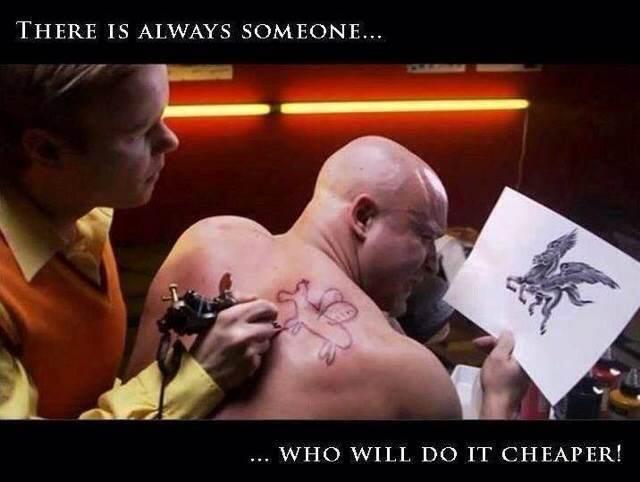In 75% of these projects, Consulting partners were chosen based upon 2 main factors:
1. The recommendation of the chosen software firm’s salesperson / customer relationship manager, or
2. The chosen Consulting firm had done a previous project with the company (typically non-HR related).
The majority of customers we spoke with received 2 or fewer proposals, and spent far less time on partner selection than they did selecting their software. We even spoke with one large organization who said, “We had a choice in partner?”
 Just because you recognize a Consulting partner’s name because they advertise at the airport or because your software salesperson brought them to your door doesn’t necessarily mean they are your best options. Conversely, a boutique vendor might not have the capabilities or capacity to handle your project depending on its scale. A thorough and independent partner evaluation with multiple options is important–at the very least to make sure you’re confident in your choice and getting a competitive deal.
Just because you recognize a Consulting partner’s name because they advertise at the airport or because your software salesperson brought them to your door doesn’t necessarily mean they are your best options. Conversely, a boutique vendor might not have the capabilities or capacity to handle your project depending on its scale. A thorough and independent partner evaluation with multiple options is important–at the very least to make sure you’re confident in your choice and getting a competitive deal.
The vetting process for a Consulting partner up until now has not been easy (see “What I Learned as a Ghost Shopper for HR Services“), but finding the right match is absolutely critical to project success. The capital investment made to implement these systems is just as large as the software purchase, and the team you end up with can make or break your project’s success.
Lessons Learned: Raven Intel Project Reviews
Below are 10 hard questions you should be asking (but might not know to ask) when you interview potential HR Consulting partners. These are based upon the “Lessons Learned” that we hear in our project reviews at Raven Intel, as well as wisdom from industry experts.
10. Have you done this type of project before?
Previous experience that matches your software, scope and geography are critical.
Your potential partner should be able to point to specific projects (software, modules and geographic scope) that look similar to your project. Similar industry expertise is important, but so is expertise with the functional areas of the product you’ll be installing.
We heard from one customer who said the consulting firm they chose did great in North America, but the “wheels came off the bus” during the European roll-out.
– How many projects have you completed with the same software / modules / geography as ours?
– How long have you been implementing this specific cloud software?
Red flags:
– General statements about implementing HCM v. your chosen cloud software
(e.g. SAP / Oracle on-prem vs. SAP SuccessFactors / Oracle HCM Cloud)
– Few specific project references (or consultant certifications) for the modules that are important to you.
– If your project is global–lack of actual in-country project experience or consultants.
– Lack of proof points around the quality of implementations of similar scope
9. Who is my team going to be? Where is my team located?
It’s all about the people.
No matter how strong a Consulting organization is, the quality of your project is going to be based on the team that you are assigned. Many HR customers we surveyed recognized individual Consultant project leads by name as the most important reason for their satisfaction / project success.
There is much talk about the concept of choosing a partner for “Cultural Fit”, but what exactly does that mean? It’s important that your organization “likes” the persona of a consulting firm, but it’s hard to truly know how that feeling will mature during the actual project. Many times the team that you “like” during the sales process is totally different than who you get during implementation as Consulting firms assign resources based upon capacity. Industry expert, Brian Sommer says, “the wanting and the gettin’ are 2 different things.” Depending on a firm’s workload and staffing and when you sign an agreement with them, you may not get the resources you thought you would.
– Is the team you present during the evaluation process going to be who I get during my actual project?
– Where is my team located? How often will they be on-site?
– How many other projects will they be working on at the same time?
– What type of background do they have? Are they recent college grads or HR functional experts?
Red Flags:
– The Consulting sales team (v. actual Consultants) is doing most of the talking
– The Consulting firm makes no guarantees about who is going to be assigned to the project
– The Consulting firm has no in-country resources in or near the countries you have a big footprint in.
8. What are customers and employees saying (independently) about this Consulting partner? No shocker–the Consulting partner is only going to give you happy references.
Real-life customer experiences are perhaps the most indicative marker of a Consulting firm’s quality. Without these proof points, all the number of certifications, projects completed and awards in the world don’t matter. Most of the time customers ‘spoke with a reference’ that was provided by the Consulting firm, but this isn’t an objective approach–consulting firms wouldn’t provide a negative reference. Independent peer reviews and references are the easiest way to gain confidence that a partner can deliver on their promises and hear the real-life stories of customers like you. (Raven Intel is and will be a huge source of information here.)
– What independent project reviews are available aboutyour firm?
At Raven, we can spot good firms from a mile away with how receptive they are to providing customers for us to survey.
– What are independent references saying about your team?
– What are your employees / former employees saying about your firm?
Red Flags:
– Consulting partner talks a big game but has no publicly available reviews or references to be found
– Consulting partner is guarded about providing references (and uses the phrase “NDA” often.)
7. Certifications.
Bigger numbers don’t always mean better. In some cases, one consultant can have 8 certifications.
Certifications are indication of the breadth and expertise of a Consulting firm and shows they’ve invested in bench strength to handle many projects. Larger firms will lead with these numbers, and while they are important, they still need qualification. What’s most important is the team assigned to you has the right certifications to get the job done right.
Each software vendor runs their certification and partner ecosystem differently. Some are tightly monitored and closed, others are more loosely controlled and open. In our research, we’ve found that no software company is immune to implementation hiccups or partners that may be aggressive in stating certification statistics.
– How many certified consultants do you have? (in the type of software modules we bought)
– Are they located in the same geography as my project? (very important that they are)
– Are they Professional v. Associate designations (+1 for Professional designations)
– What previous work / functional HR experience do your consultants have? (Recent college grads without any real-life work experience can earn certifications)
– Is your firm a Recognized Expert by the Software Company? (+1 for Awards, “REX” certification or Gold standing.)
Red Flags:
– Resources are not certified or have low certification #s in the geography you’re in.
– The Consulting firm is boasting about big numbers of certifications, but light on the actual project references or unable to tell you where or what those certifications are in (see #8)
6. How much is this going to cost?
Raven Intel has found when projects go over budget 25%+, NPS drops 2 points. That’s significant.

Chances are if a Consulting firm can afford to advertise at the airport, they’re not going to be the least expensive option. Conversely, if a Consulting firm is coming in at rock-bottom prices, they might not be able to offer the breadth and depth of experience you need and that is a big risk as well. Finding the right balance between your confidence in the the firm’s quality, capabilities and price is key.
– Is this quote fixed-bid or time-and-materials?
– In previous projects like mine, what % did you deliver on-budget?
Red Flags:
– Rock-bottom pricing / “free” services up-front (that result in expensive change orders mid-implementation.)
5. Is this an Digital Transformation or a Systems Implementation?
Which is it?
If your project is a full-scale “HR Transformation” where you are re-defining company culture or significantly augmenting your processes, you probably need something more than a systems implementer. You also need to budget accordingly. Conversely, if you are just looking for a software implementation or project work, you very well could do well time / cost-wise to find a more niche player.
– Is my project a true HR Transformation or a Systems Implementation? Or an HR software project?
Red Flags:
– Consulting partner is selling you an HR Transformation when all you need is a systems install
– Consulting partner is selling you a Systems Install when you need an HR Transformation
4. Integrations

This is one of the biggest sources of frustration for customers–integration scope-creep–that almost always results in project time and budget over-run. Make sure to define all of these up-front, and ask what the process is if ‘something new comes up.’
– What integrations are included with the project?
– Do you have pre-built connectors to my systems?
– How difficult are these integrations (e.g. Global Payroll integrations are very difficult)
Red Flags
– Consulting firm says ‘integrations are included’ without any specifics. It’s never that easy.
3. How much time is this going to take?

One HR Customer who just completed a Phase 1, full HCM global install said, “plan on 1.5x the amount of time you think it is going to take you to implement your system, then double that.” We hear this regularly on project reviews. In general, if you have a specific date you need your project live, plan on a nice cushion beyond the estimate.
– What is the time required to do this project?
– How often does your firm deliver on-time?
Red Flags
– Consulting firm says they can implement “as fast as you need us to”
2. What other services / products do you offer?
Many Consulting partners offer pre-packaged services and software they’ve built beyond just Consulting. Their firm might also have expertise beyond just the software you’re implementing. That can be a value-add and provide additional, out-of-the-box options.
– What ongoing, post-implementation services do you offer?
– What other systems do you have expertise with?
– Do you offer any additional out-of-the-box products you’ve developed
1. How big does my internal team need to be? Who does what?
One large global manufacturer said they assumed they’d need less IT resources than they did for their on-premise system because they were moving to the Cloud. Not so. This caused friction during the implementation process they wish they’d avoided.
– How many internal resources are needed from a functional as well as IT perspective?
– What is the % time commitment from each party given the timeline established?
Red Flags:
– Consulting firm says that since it’s cloud software “fewer IT resources are needed.”
A thorough, independent review of Consulting partner options can help ensure your HR software / transformation process is successful. Raven Intel is a free service and can help you easily engage partners best suited to your needs (click here now for more details).
ps – if you have recently gone through an HR Cloud software project and want to review your process and partner, please click here.

